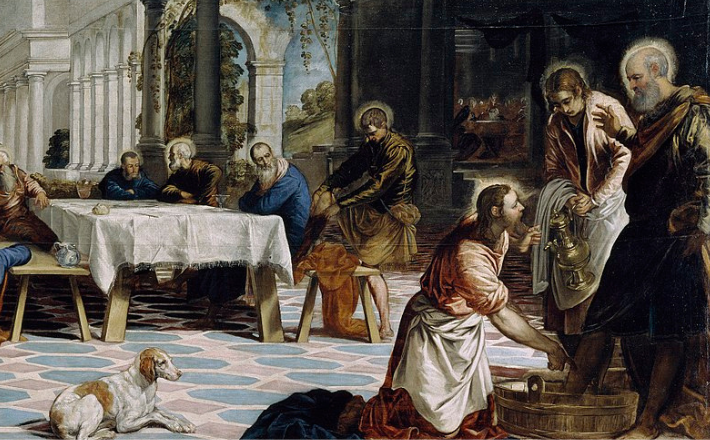Commentary on Exodus 12:1-4 [5-10] 11-14
Tonight is about rituals and stories as Christians around the world celebrate the institution of Holy Communion, the Lord’s Supper, or the Eucharist, depending on your tradition. Churches engage in different ways of celebration, from a simple communion service to a meal where all participants sit together at a table or tables, or as an interactive play of the event as narrated in the New Testament.
As we engage Exodus 12, it is essential to connect the Exodus text with the New Testament events without collapsing them into a single celebration. This night is neither a “Christian seder” nor “Passover.” While we share a large majority with our Jewish brothers and sisters, we do not and should not engage this night in the same way.
Passover celebrations this year will not occur until the Christian Fifth Sunday of Easter. In addition, seder rituals and liturgies were not practiced in the New Testament period, so the meal shared by Jesus and his disciples is not a seder as we know it today.1 There are also historical questions about this meal shared by Jesus and the disciples, including whether it was an actual Passover celebration with the lamb that was offered for sacrifice at the Temple in Jerusalem.2
So, if it is not a Christian seder, what should we do to weld the lectionary texts without flattening the two great faiths that share this Exodus text? One thing we can do is tell the story. Our present-day communion liturgies tell the story of salvation from creation to the exodus as the Passover Haggadah does, but it is here the traditions go into separate ways of telling the rest of the story.
The Christian communion liturgy continues through the life and death of Jesus, his resurrection, the birth of the church, and all the saints through time until we arrive at this table in this place on this night. What we share is one God whose story is salvation in all its forms: from enslavement, from sin, from disobedience, from hopelessness.
Tonight is the night of stories of salvation. Tonight is a chance to explain why we tell the story when we gather at the table. We tell the story so it becomes our story. We share this table because a meal is where the stories of the family are told. We Christians may tell our stories differently from our Jewish brothers and sisters, but we all sit together, break bread, and share the story of salvation. As Christians, we celebrate this night. We, too, use different elements, different names for the ritual, and different liturgies, but they all tell the story of salvation.
We also gather around two simple elements—bread and wine. When we see this simple meal, we should remember that these elements were the ones available even to the poorest of families. They are a physical manifestation of God’s demand to love the neighbor, the stranger, the widow, and the lost.
God wanted the inclusion of all families without causing a financial burden. These elements, bread and wine, were the staples of meals in all the known world at the time. They worked throughout the diaspora in all cultures. They represent God’s care and salvation that will not be limited by cultural or national borders or financial resources. The meal is the simplest, easiest, least expensive. It is meant not as a statement of status but as a statement of inclusion for all.
This night we tell the story with the simplest of meals to remind us of God’s love for all, especially those with meager tables in small homes; for Jesus and the disciples, it was not even their home, but one borrowed for the occasion. Let us tell the story and thank God for the simple pleasure of dining once again with our Lord.
Notes
- Martin Bodek, “A Brief History of the Haggadah,” Jewish Book Council, April 3, 2020, http://tinyurl.com/kb65s963.
- Jonahan Klawans, “Was Jesus’ Last Supper a Seder?,” Biblical Archaeology Society, December 14, 2023, http://tinyurl.com/4743jkah.


March 28, 2024